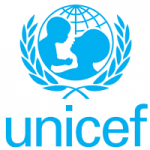By Asma’u Ahmad
The United Nations Children’s Fund (UNICEF) has called for collaboration between media and government to ensure improved access to water and sanitation by the populace.
UNICEF Chief Communication Officer, Abuja Office, Mr Geoffrey Njoku, made the call at a media dialogue on Water, Sanitation and Hygiene (WASH) in Uyo, Akwa Ibom state.
 The forum was organised by UNICEF in collaboration with the Child Rights Information Bureau of the Ministry of Information and Culture.
The forum was organised by UNICEF in collaboration with the Child Rights Information Bureau of the Ministry of Information and Culture.
The WASH is a European Union-funded project implemented by UNICEF in five states of Akwa Ibom, Rivers, Bayelsa, Delta and Edo in the Niger Delta.
Mr Njoku, who described the media as agents of change, said that that through partnership and effective reportage on WASH, the media would be able to hold government accountable to its electioneering promises.
These, according to him, include welfare of the populace with regard to access to potable water and toilet facilities; these are part of the rights of the populace.
The communication officer said that it was the responsibility of government to provide good water supply, among other amenities, for its populace.
He said that the dialogue was organised to chart a course for improved water situation, “understand link between water and child survival; create visibility for water situation and interventions in the Niger Delta and the country.”
According to him, it is also aimed at understanding UNICEF and EU roles and efforts in WASH in Nigeria.
UNICEF WASH Specialist in Rivers state, Mrs Martha Hokonya, identified lack of access to WASH as contributing to more than half of global diarrhoea cases, being the second leading causes of under-five morbidity and mortality.
Mrs Hokonya said that access to WASH “improves health status, productivity, promotes quality family time and afford women more time for relaxation and cater for their children.
According to her, WASH or access to water promotes good hygiene and reduces huddles in family with regard to timeliness in household core.




